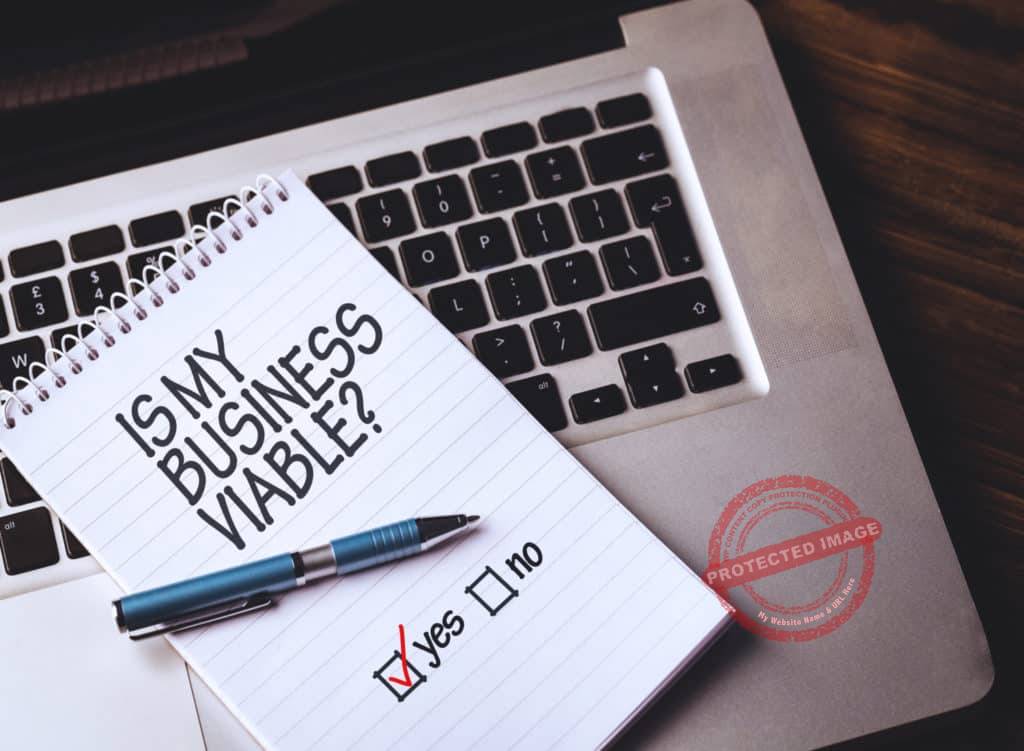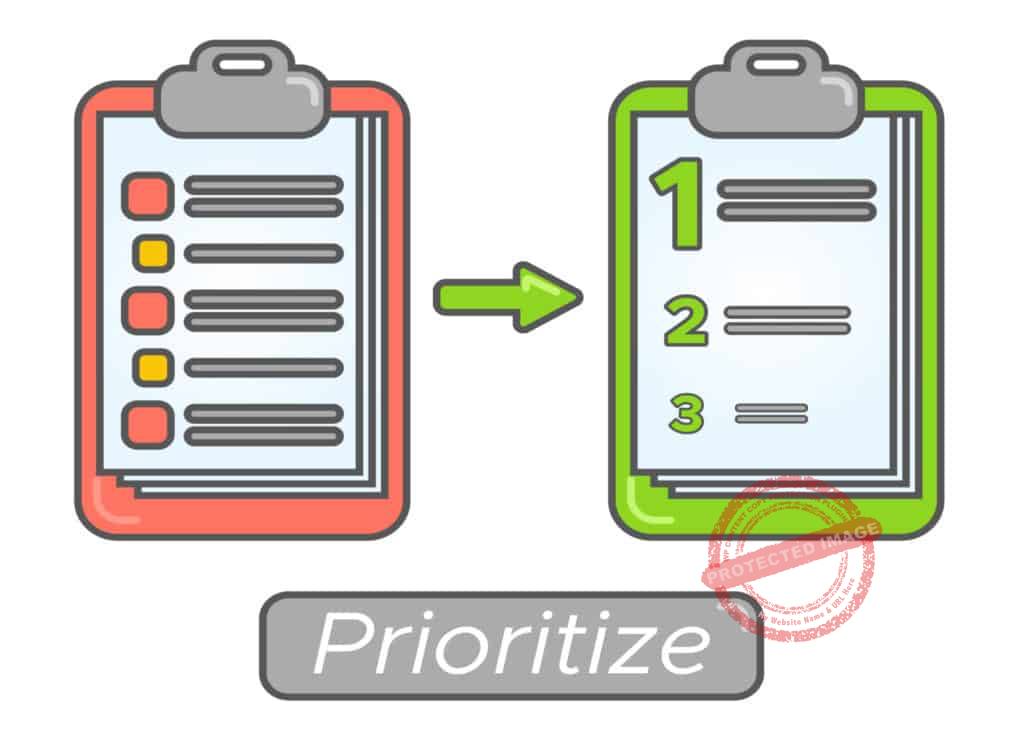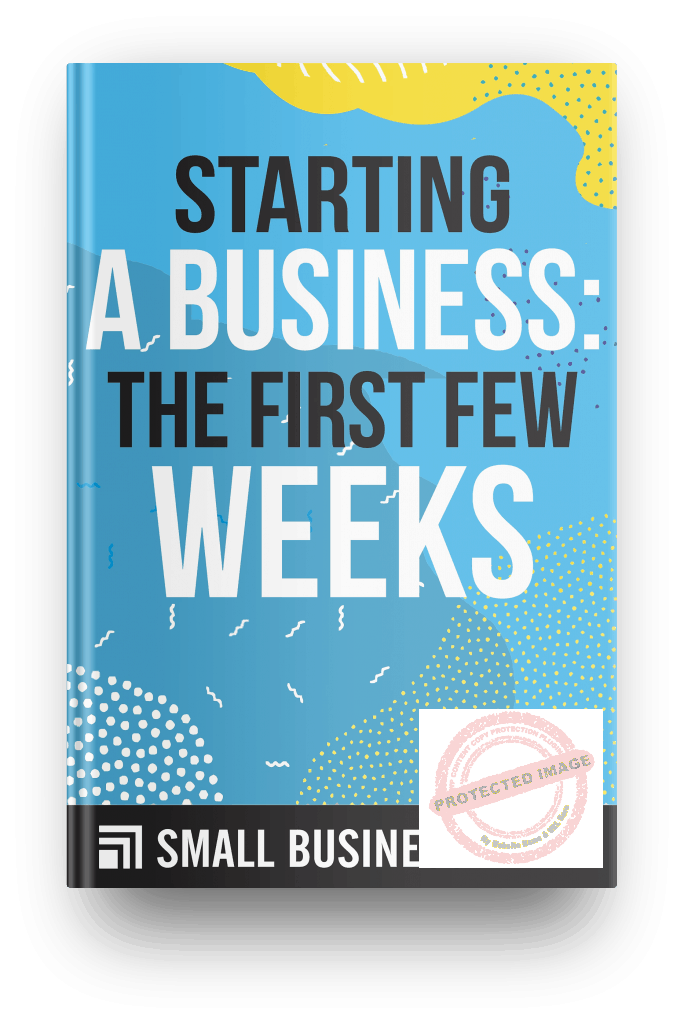What should you do during the first few weeks when starting your first business? In this article, ‘Starting a Business: The First Few Weeks’, you will learn to generate a business idea, check out competitors, create a plan, identify risks, secure funding, establish ownership, and make sure that you cover all the legal issues concerning your business.
The things to do in the first few weeks of starting a business can be summed up in one (long) sentence, but you will need at least a month or two to finish all of them.
Most of the ideas that will be presented here will seem basic.
But truth be told, they can consume a lot of time.
Also, they are mandatory meaning that you need to accomplish them in order to avoid the pitfalls of starting a business unprepared.
To reinforce the previous thought, starting your first business appears easy on paper, but it can easily become hard to carry out.
Here are some things to know when starting a business:
The Business Idea

A business is like a fruit-bearing tree.
You plant a seed, take care of it every day, wait for it to grow, and then you finally harvest its fruits.
You should note, right from your first week, that knowing how to start a business right is basically knowing the best seed you can sow from the very beginning.
A business idea that will work well with you should satisfy at least one of these requirements. It must;
- Be related to something you are passionate about.
- Take advantage of your skills and talents.
- Be something that you can do for the rest of your life.

Meeting all of those characteristics is ideal.
You have a higher chance of succeeding in your business if you choose something you love, can specialize in, and will never hate.
It is best that the business idea sits well with you.
However, you should also consider if it will also sit well with your future customers.
The next thing to do is to test your idea’s viability.
Simply put, you need to determine the current state of supply and demand for the product/service of your business idea.
This is important during the first few weeks that you start your business.
Consider the following questions:

- Is the product or service needed by people?
- Will people spend money on the product or service?
- Is somebody else providing the product or service?
The next step is to check your commitment to the idea.
This step might seem useless given the first one, but always remember that you will be risking your money for this move.
The business idea should satisfy all of these three questions:
- Are you ready to do this business for five to ten years?
- Will you be willing to risk your money and loan funds for this business?
- Are you keen that this business will become a success?
The Value Proposition

You now have your seed. So, can you start a business now? Not yet. You need to convince people to water your seed.
Water is money in this case.
And before you can convince others, you must convince yourself by creating a good ‘value proposition’.
A value proposition is a marketing or business statement that includes the promise that you want to deliver to your customers.
It should explain why and how you will relieve customer problems or improve their situations.
The proposition should exactly tell them what they will get in exchange for their money and the use of your products or services.

The statement must provide specific and even quantifiable benefits.
Also, it should make your customers know why they need to get their needs from you instead of other businesses offering similar products or services.
If you are convinced by your own value proposition, then the business idea you’ve generated just might work.
You can also use this proposition in getting funding from outside sources.
Of course, there are some businesses, you can start with no money or with little money.
Competitor Research

Your business might not be unique.
Some people could have already used the business idea and are already reaping the profits.
Those people are your competitors.
In the initial weeks of starting your business, it’s crucial that you look around and understand what kind of industry you are going to enter and the people that already had a head start before you.
Before establishing your first business, which will be similar to theirs, you must prepare yourself against your competitors.
One pro tip when checking out the competition is that you should not view other businesses similar to you in a negative light.
After all, you’re the one that is going to compete with them; you’re the challenger.

Instead of avoiding them or fighting with them, you can just take advantage of them and use them as good sources of information on running a company better.
Thankfully, you can search for those businesses online.
All you need to do is type the keywords ‘<insert your business type> near me’ in the search engine.
You will be instantly provided with the locations of your competitors.
You can visit them one by one in person or go to their websites (if they have one) to perform your initial check.
Going back to the planting-a-fruit-bearing-tree example, checking out your competitors is just like checking out how other people are cultivating the same seed as yours.
One of the first few things to know especially in the first few weeks of starting a business is how your competitors operate.

It will also help you a lot if you profile their customers.
After all, they would be the same people you are going to serve once your business starts.
After getting some information, think of ways how you can get ahead of them.
Think about the aspects of the business that you can excel in or areas where you can go the extra mile.
The Business Draft

Once you have an idea on how to cultivate your business seed better (thanks to your future business rivals), it’s time to prepare the plot of land. In your business’ case, it’s time to create a business draft. This is the groundwork of your future corporation.
At this point, you should not think about your potential income and expenses yet.
That will come much later.
Do not limit yourself while creating your draft. Include everything you want in it.
Start with your business’ headquarters.
Imagine and draw what the office would look like.
Determine how big it will be.
Think of the furniture and equipment you want to be placed there.
Estimate how many products you will procure, produce, and sell.
Imagine how many people will come to your business.

Know how many people you want to be part of your business.
Determine their roles.
You should place your dream for your business on paper.
It sounds cheesy, but thinking about your new business a bit romantically and in an optimistic view will make you feel good and motivate you.
Risks

After spending the first few weeks thinking about your dreams and ideas for the business you intend to start, it’s time to discuss and think about risks.
What are the things and factors that might keep your business from surviving?
Assessing the risks you might encounter may make your initial business idea and your dream business crumble.
Risks are opportunities that may provide huge rewards in exchange for exposing your business to the probabilities of experiencing losses.
To know the risks your business will face, you need to do an analysis.
There are two types of risks: internal and external.
Internal risks happen inside your business while you are running a company.
A few of them are operational, workforce, financial, and marketing risks.

On the other hand, external risks happen outside your business.
Some of them are competitors, laws, natural disasters, the economy, and consumers.
Identify all the potential risks in those areas.
List them down.
For example, hiring a highly skilled worker with a mean attitude is a business risk.
The worker can increase productivity and quality while he/she may negatively impact the work environment for your other employees.
Note that risk assessment is a permanent process in your business.
You will have to regularly do it and find ways to go around or mitigate those risks.
Polishing the Draft

In your first weeks of starting your business, you should already have a draft, so you know more about the industry, and you have an idea about the risks you will be facing.
Now, it is time to revise your draft and make it more realistic.
Why?
Your draft will help you get funding if required and convince other people to join you in your business venture.
To polish the draft, start categorizing assets, products, and employees you’ve included into essential and non-essential.
Shelf the non-essential list for now.
Put prices on each of the items in the essentials list.
The price you place is the amount of money they cost for each month.
Put them all in negative.
After that, put the amount or value that each one on the list can bring back to your company monthly.
Now, combine the cost and profit of each item.

Sort the items from highest to lowest.
The items at the top will be your most essential assets.
Prioritize acquiring them.
You now have an idea about the importance of the things you need for your business.
Add the costs of all items and you will get your initial month’s liabilities.
Add all the potential profit of all the items and you will get your initial month’s estimated gross.
At this point, you need to be pessimistic.
As of now, you only have an estimated amount for your profit.
If your initial liabilities are far greater than your estimated gross, that’s normal.
The next thing you need to do is get some funding to cover those liabilities until your gross gives you back your money.
Managing Finances

The first thing you should understand in your initial weeks of starting a business is the importance of capital.
Capital, or financial capital, is the amount of money you use to start and grow your business.
At the beginning of your venture, it may basically refer to tangible money.
However, as your business grows, you will find that capital has more definitions.
Your capital is like the soil and the nutrients needed for your plant to grow.
Without a constant supply of it, your business will wither.
There are three typical sources of capital or funding for new business owners.
They are:

Personal: This means that the capital will come from you. You can use your money or your assets for your business.
Friends and Family: This type of capital may come from your parents, siblings, spouse, or friends.
It’s common that the amount of capital that you may get from this source is the same as the amount of personal money you have.
Also, involving family and friends as your business funding sources can make your relationship with them go bad if your business fails.
Bank: This is the most common source of funding. Each bank has different loan setups and requirements. They give out loans and earn through interest rates.
There are two other sources as well, but you need to have connections to get access to these sources.
Venture Capital: Venture capital comes from people who are readily available to partner up with new businesses.
However, they have high expectations and requirements from your business.
You might also have to give up a part of your ownership.
Angel Investors: These are wealthy individuals who simply want to help starting businesses find their feet.
They may or may not ask for a share in ownership in return for their money, but they will often require you to reserve rights for them to co-manage the company if it is not doing well.
Ventures, Partnerships, and Co-ownerships

Do you want to take care of your business on your own?
Do you need a helping hand?
Are you willing to share the harvest with other people?
As early as possible, especially in the first few weeks of starting your business, you should establish ownership of the business.
In a business, you do not have to be the sole owner.
You can partner with someone else or you can own it as a group.
Partners can be great sources of initial funding.
But they can bring in more than that.
They can be your initial employees.
For example, they can be your accountant or your lawyer.
They can also be your asset.
For example, if you are going to start a restaurant, you can partner up with a great chef with a good reputation.
Setting up who owns the business early on will allow you to easily pick the business structure ideal for you.
Starting A Business: The First Few Weeks Infographic

The Business Structure

Before you register your business or company, know the right structure for you.
This is also important to note in your initial weeks as you start your business.
There are at least five common business structures you can choose from.
Sole Proprietorship: This basically means that you completely own the business.
This is the simplest and most flexible form of business structure.
There are limited legal concerns and taxes. However, when your business goes down or it comes into debt, everything will be passed down to you.
General/Limited Partnership: There are typically two types of partnership: general and limited. With a general partnership, you and your partners share the profits and losses of the business. You also share skills, labor, and money.
You and general partners are liable for the business debts.
Limited partners, on the other hand, have limited contribution and their liabilities depend on how much they’ve invested in the business.

Limited Liability Partnership: All partners have limited liability in the business. This means that the mistakes and negligence of one partner in the business do not hold the other partners liable.
Corporation: If a business registers as a corporation, the business is treated as an individual. As such, the business is completely separated from its owners.
Limited Liability Company (LLC): An LLC is easier to establish and operate than a corporation.
However, the owners are not liable for any debt that the business creates.
Also, the business is not liable for the debt of any of its owners.
Timing

Plants can be perennials, annuals, or seasonal.
Some grow faster when the days are longer while some prosper when days are shorter.
The same goes for businesses.
In your first few weeks, note that starting your business at the time it will thrive faster is ideal.
Timing is important when launching a business. You should consider the date and circumstances when you will launch it. It helps if the economy is good and the industry you are going to enter is flourishing.
Legalities

The processes and requirements to get tax identification, licenses, permits, and business registration differ from country to country, state to state.
You can always rely on finding help in getting the necessary paperwork to start a business through your lawyer or accountant, but it would be worthwhile for you to do it yourself.
Knowing the ins and outs of getting the necessary documents and paperwork to start your business is crucial for your business’ security and success. It will also save you money.
Review

Before you perform any action, review your business plan again.
It’s a must to double-check even if you’ve followed all the things to do in the first few weeks of starting the business.
Remember that you are doing something that will put you and your finances at risk.
So, understanding how to start a business right, lessening the chances of failure, and reducing the severity of the risks involved are some ways you can set off on the right foot.
Has this guide been able to give you a good knowledge foundation for your startup business?
Please share your thoughts with us!
Click on Buy Now For a PDF Version of This Blog Post
 |









